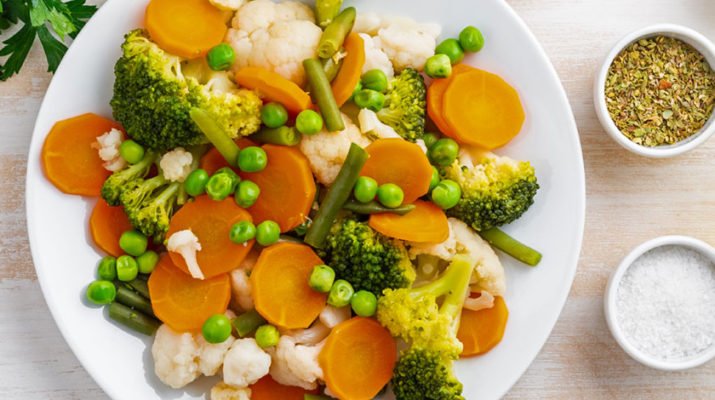By Deborah Jeanne Sergeant
You may not be an elite athlete or professional sports player; however, scaling back or eliminating the meat and other animal-sourced foods in your diet could give you a competitive advantage if you participate in rigorous activities like marathons and extreme sports or challenges like Tough Mudder races.
For decades, anecdotal cases of vegetarian and vegan athletes have claimed that nixing animal-based foods improved their athletic performance through leaner bodies, better glycogen storage in muscles and better blood flow, lower risk of heart damage and lower oxidative damage and inflammation.
But why does forgoing meat, dairy and eggs seem to lead to these outcomes?
Mary Jo Parker, registered dietitian and owner of Nutrition and Counseling Services in Buffalo, said that eating more plants helps fuel athletes.
“Carbohydrates are the main fuel source,” Parker said. “It’s the macronutrient we use first when we start to exercise. Endurance athletes rely on it even more so.”
Few long-term studies exist that point to plant-based diets as advantageous for athletic performance; however, the data available seems to strongly indicate that it can help athletes, both long-term for health and short-term for performance.
“We know endurance athletes have a higher than average risk for diseases of the heart and arteries and heart damage,” Parker said. “A heart healthy diet is important. When they’re eating more low fat and plant-based foods, it can increase their maximum amount of oxygen a body can use during exercise, which can lead to better endurance.”
Since reducing animal-sourced foods appears to reduce inflammation, athletes adhering to this eating plan may experience reduced need for recovery time after heavy training days. That can aid them in training harder since they won’t need as much time for recovery.
Natalie Robertello, registered dietitian, is the owner of Fit For You in Buffalo and works through UB Orthopaedics.
“While we know that vegan and vegetarian diets have a huge benefit for cholesterol management, hypertension and heart disease, the verdict is still out on athletic performance,” she said. “Small studies say it may reduce levels of inflammation, especially with the large quantities of fruits and vegetables and antioxidants. Also, because there is a focus on higher carbohydrates, there’s some ideas it can enhance energy and endurance.”
Protein intake supports muscle growth; however, it doesn’t require eating a side of beef or chugging endless milk-based protein shakes. Consuming sufficient nuts, seeds, beans and whole grains can do it.
Robertello said that one of the biggest misconceptions about the vegetarian diet is that eating enough protein is difficult. Most people overestimate how much protein they need and many are unaware of alternative sources of protein, like tofu, beans, lentils, nut butters, broccoli and spinach.
It’s also not required to go completely vegan to reap many of the benefits of eating more produce. Because of the many nutrients eggs and dairy contain, Robertello encourages athletes interested in eating plant-based to also include them.
“It will encourage the intake of a lot of vitamins and minerals they wouldn’t otherwise get,” Robertello said. “These include B12 and calcium.”
Because many of plant foods are low in calories, Robertello said that athletes may need to eat more frequently, as many as nine small meals per day.
Danielle Meyer also said that going plant-based doesn’t necessarily mean vegetarian. Meyer is clinical director of the Dietetic Internship Program in the Department of Exercise and Nutrition Sciences at University at Buffalo School of Public Health and Health Professions.
“Plant-based can mean that the meals are mostly plants,” Meyer said. “It does leave room for meat. We always recommend lean meat fins or feathers.”
She also advises pairing up complementary proteins, like beans and rice, to complete a whole protein, which ensures adequate daily intake of the 20 amino acids that form a protein. The human body can’t produce nine of those and must obtain them through food sources. Quinoa, buckwheat and soy are examples of complete proteins.
“Eating a variety of foods is important if you want to eliminate meat and dairy,” Meyer said. “It does require a lot of education to ensure they’ll be getting foods even through supplementation.”

